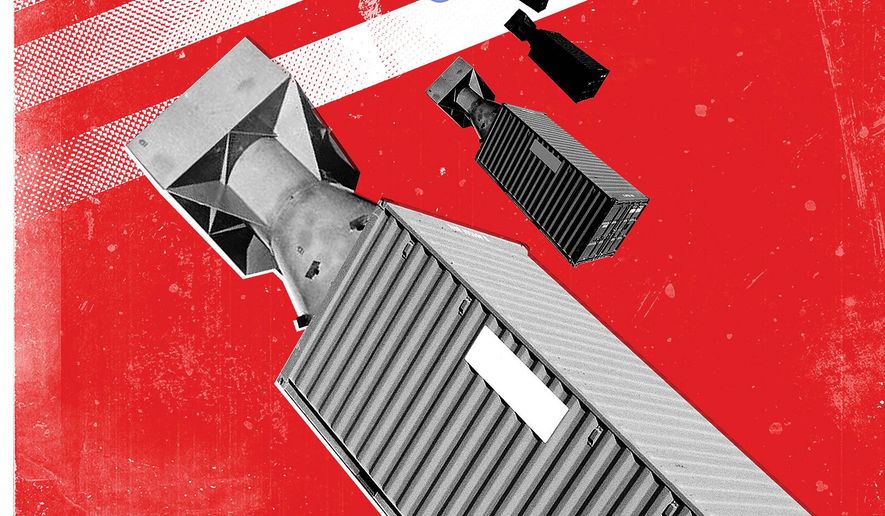OPINION:
President Trump is learning some hard lessons — winning a trade war is tough stuff. It’s not like campaigning or reality TV — those share a lot in common — but rather a difficult process of winning allies and defining reasonable objectives.
We have been in a trade war for decades, but China has been doing all the shooting. It blocks access to its markets with high tariffs and a myriad of discriminatory regulations, and compels foreign investors to take joint venture partners, reveal trade secrets and transfer prized technology. What it can’t get that way, it steals — and industrial espionage is virtually a state-run enterprise.
The tariffs the United States is levying, 25 percent on $50 billion worth of Chinese industrial and transportation goods and components, are hardly enough to move China for three reasons.
China is retaliating by hitting products made in pro-Trump precincts — items like soybeans, automotive products and bourbon whiskey — causing much more discomfort for his political allies than he can bring to bear on unelected Chinese Communist Party officials.
Mr. Trump’s trade team is divided. The Treasury secretary seems to think the nearly $600 billion trade deficit and attendant foreign borrowing are hardly a problem, and the hawks on the trade team believe the disruptions imposed on American manufactures, when they can’t get Chinese components at reasonable prices, can be remedied by bringing the supply chain back home. Both are patently false and a good reason for President Xi not to take seriously American demands.
Most importantly, these economic sanctions are aimed at changing how the entire Chinese economy is organized. For example, forcing Beijing to abandon tactics for accomplishing global leadership in high technology by 2025 would require removing something a civilization founded on thousands of years of autocratic rule and attendant corruption desperately needs to succeed — guidance for businesses that look to political authority instead of market signals to make big bets, and subsidies to overcome the overhead imposed by corruption.
You might as well ask Americans to stop holding elections and designate the queen’s second son as our king.
The best Americans can hope for is to pressure China into accepting a managed trade arrangement that rebalances bilateral commerce. However, as the history of economic sanctions indicates — for example, those imposed on South Africa to end apartheid or on Iran to submit on its nuclear program — those require the cooperation from our allies to succeed.
On the president’s trade team, the doves may understand this but the hawks, like Peter Navarro, appear to be advising the president he can make a trade war on half the planet and succeed.
That’s folly.
To get a reasonable truce with China, President Trump will have to climb down from his aggressive trade sanctions toward Europe. However, what the Europeans offer in return to address China and our trade complaints with them are failed remedies from the past.
Our European friends want to take all this to the World Trade Organization (WTO), do studies, establish commissions and the like. We have tried that ad nauseam and need results now.
The stuff China does to America and Europe — and Germany does to the United States and southern EU states as well — do not lend themselves to WTO solutions. Good examples include reams of arcane regulations and currencies that are undervalued for prices in their domestic economies.
In fact, those are at the core of the EU’s inability to reach a suitable arrangement with a post Brexit United Kingdom — it insists that London subject itself to Brussels’ endless bureaucratic wrangling without a vote — and the euro is why Brussels is headed for a train wreck with the nationalist government now running Italy.
To break the log jam, Mr. Navarro and company need to come up with a post-WTO plan for President Trump to propose — an arrangement where Western nations continue to trade governed by the WTO but China is dealt with separately — and other reforms that would rebalance trade between the EU and the United States.
However, we have heard little of what the end game looks like other than boastful confidence that our targets will bend quickly. And when quickly doesn’t happen, domestic political pressure could impose a harsh lesson on an overconfident Mr. Trump and thrust the United States into a humiliating and costly defeat.
• Peter Morici is an economist and business professor at the University of Maryland, and a national columnist.




Please read our comment policy before commenting.